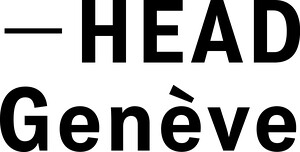HEAD × ISR Summer Academy 2018: Observation Practices and Methods applications due: June 1, 2018
Applications should be sent before June 1, to Christophe Kihm, Professor Visual Arts Dpt: christophe.kihm [at] hesge.ch
Istituto Svizzero di Roma Via Ludovisi 48, I – 00187 Rome
A project by HEAD – Genève in association with Istituto Svizzero di Roma, Manufacture, University of Performing Arts (Lausanne), and HES-SO University of Applied Sciences and Arts Western Switzerland
The third edition of HEAD x ISR Summer Academy will take place between July 15 and 20, 2018 at the Swiss Institute in Rome. This year it aims to initiate reflections and works on contemporary observation practices in science, human sciences and art, in a program involving researchers from different fields in the arts and sciences, invited to share their researches together with a group of 12 master degree students.
An observation can be carried out on several scales (macro to micro) and can thus mobilise various technical means and tools (the astronomer’s telescope, the biologist’s microscope, the neurobiologist’s scanner, the climatologist’s satellite picture, etc.). Although many historians of science and technology have endeavoured to demonstrate how resorting to these means and to the images they produce has determined the object of the research undertaken, we will follow another path. Our assumption is the following: If an observation protocol systematically applies to the collection of information, data and clues, and if the latter have to be translated and interpreted to produce results at various levels, then in that case, information methodologies and processing remain predominant in distinguishing disciplines and knowledge relating to observation.
Getting into the details of these methodologies, whether they apply to the study of the planets, of the living or of social behaviours, is this Summer Academy’s first area of focus. However, this assumption is not confined to observation methodologies in various scientific disciplines (ethno-methodology of relationships in human sciences, exobiology or ethology, etc.): it is flanked by two issues that lie at the margins of observation:
Under what conditions can one include non-human animals or machines in the history of observation? For instance, do predators make the most of observation when they are tracking and hunting prey? Can we say that the robot Curiosity is an observer of Mars?
How is observation put into practice by viewers in an exhibition or in a theatre play? In other words, how are viewers solicited by contemporary artworks whose contexts and narratives require a type of attention and understanding that redefine their outlook?
The study sessions will include two different moments every day:
1. Lectures by researchers and artists whose work places special emphasis on observation.
2. Based on their lectures and the following discussions, joint projects will enable participants and lecturers to put observation protocols into practice in workshops.
Invited scientists and artists
–Marianne T. E. Heberlein, ethologist (subject to confirmation): Animal Behavior, Department of Evolutionary Biology and Environmental Studies, University of Zurich, Zurich, Switzerland; Wolf Science Center, Ernstbrunn, Austria.
–Corinne Freissinet, astrobiologist: CNRS (Centre National de Recherche Scientifique), Laboratoire Atmosphères, Milieux, Observations Spatiales (LATMOS), Paris, France.
–Bertrand Dezoteux, visual artist: Professor at the High School of Fine Arts Pays Basque, Bayonne, France. He makes experimental 3D films that are in-between documentaries, fiction and science-fiction.
–Arnaud Dezoteux, visual artist: He makes films that are questioning the dramatic aspects and the conditions of production of movies, working mostly with the green screen.
–Loïc Touzé, choreographer and dancer (subject to confirmation)
Teaching in different countries, his research is based on protocols and exercises that allow to experience powers of the imaginary of gesture and of its performativity.
The program is curated by Christophe Kihm, curator, critic, and professor at HEAD – Genève.
More info on www.head-geneve.ch
Applications
The HEAD ISR Summer Academy is open to MA Fine Arts students from all art schools in Switzerland, in particular HES-SO, who are currently studying or who graduated less than two years ago. 12 students will be selected upon presentation of a text (two pages max) explaining how their works, researches and interests are related to the theme of the 2018 Summer Academy, a resume and a portfolio of practical and/or theoretical work (in French and/or English). All contributors and participants will receive room and board onsite at the Istituto Svizzero di Roma. The aim for all participants will be to outline a research draft and project plan that is at the crossroads of arts and sciences, in association with the guest faculty.


